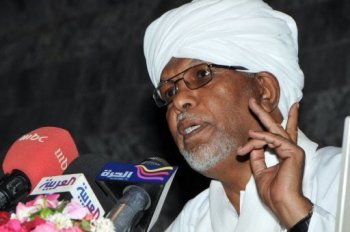Sudanese parliament approves Kuwaiti loan despite strong opposition
June 19, 2013, (KHARTOUM) – Sudan’s national assembly narrowly approved a loan from Kuwait after a heated debate on the issue of violating Islamic Shar’ia law which prohibits borrowing money that has interest terms attached.
 Earlier this year, Kuwait and Sudan signed the $85 million loan agreement that aims at expanding electricity in East Sudan and make it available 660,000 people.
Earlier this year, Kuwait and Sudan signed the $85 million loan agreement that aims at expanding electricity in East Sudan and make it available 660,000 people.
The loan was offered at a 2% annual interest rate in addition to 0.5% for administrative fees and a repayment period of 21 years including a 4 year grace period.
Islamic law prohibits accepting the collection and payment of interest, also commonly known as ’Riba’. However, very few Muslim countries enforce this rule. The doctrine of necessity in Islamic legislation allows recourse to loans with forbidden interest in certain conditions.
52 MP’s voted in favor of the loan with 46 against and 9 abstentions.
MP Suad al-Fatih from the ruling National Congress Party (NCP) said that god’s wrath will befall on Sudan for agreeing to this loan and started chanting “God is Great” and “There is no God but Allah”.
“Shame on you for making a Halal [Islamic term for legal] out of something Haram [Islamic term for illegal],” she said after the vote.
Even the lone opposition MP in parliament expressed staunch rejection.
“At the day of judgment there will be no National Assembly,” MP Ismail Hussein said adding that Sudan failed to pay the principal on external debt making it shoot from $15 billion to $41 billion.
But East Sudan MP’s underscored the urgency of the loan with one saying that people in the region are living as if they are in the stone age which justifies tapping the Kuwaiti line of credit.
The Parliament Speaker Ahmed Ibrahim has previously asked the Islamic Fiqh Council for an opinion in light of the necessity and also sought finance ministry input which emphasized the lack of alternatives.
Sudan’s finances have tightened since oil-rich South Sudan seceded from the north in July 2011.
Furthermore, Sudan’s $41 billion foreign debt makes other countries reluctant to extend credit.
(ST)
